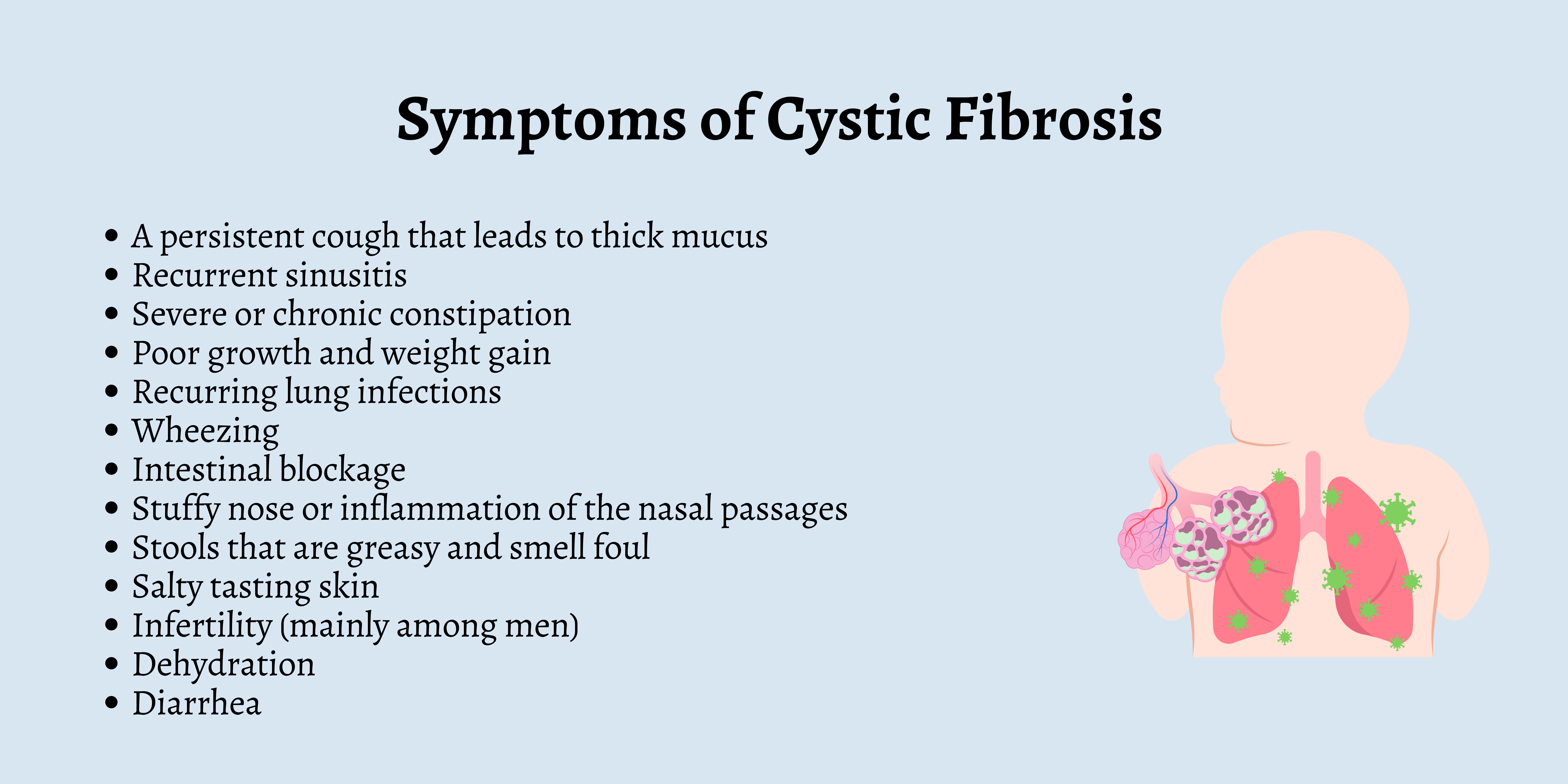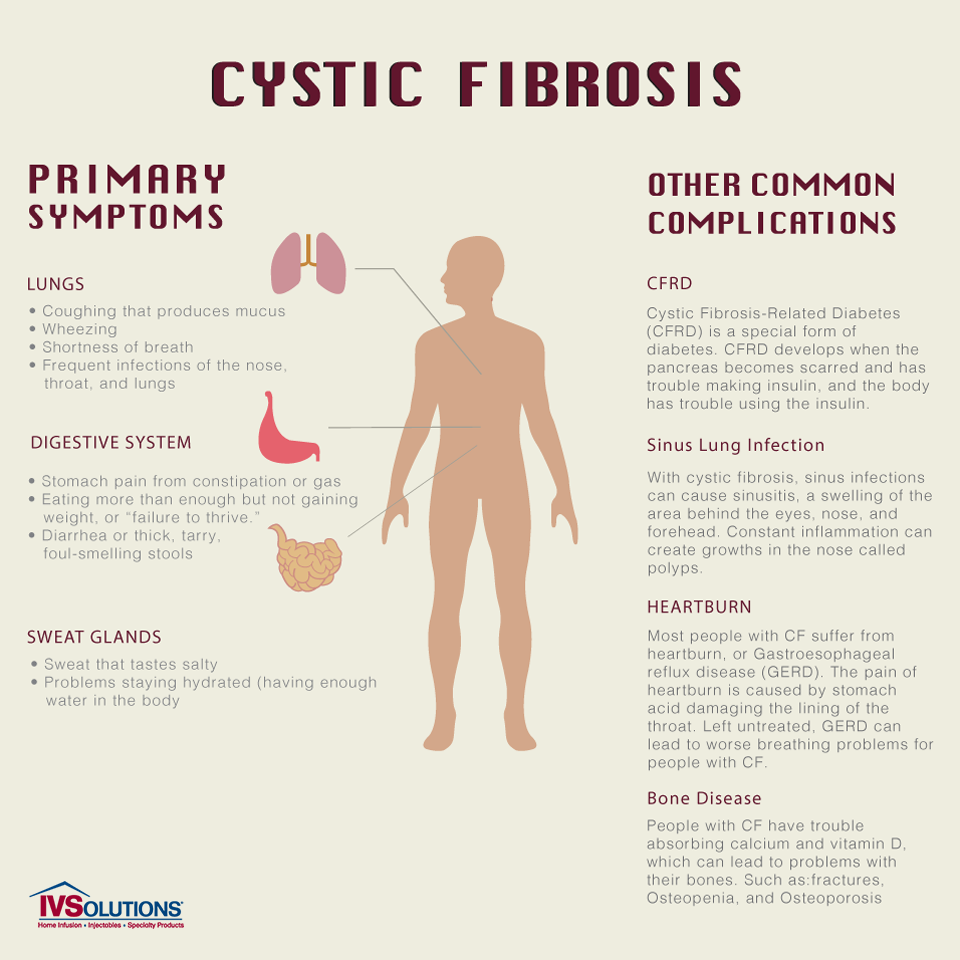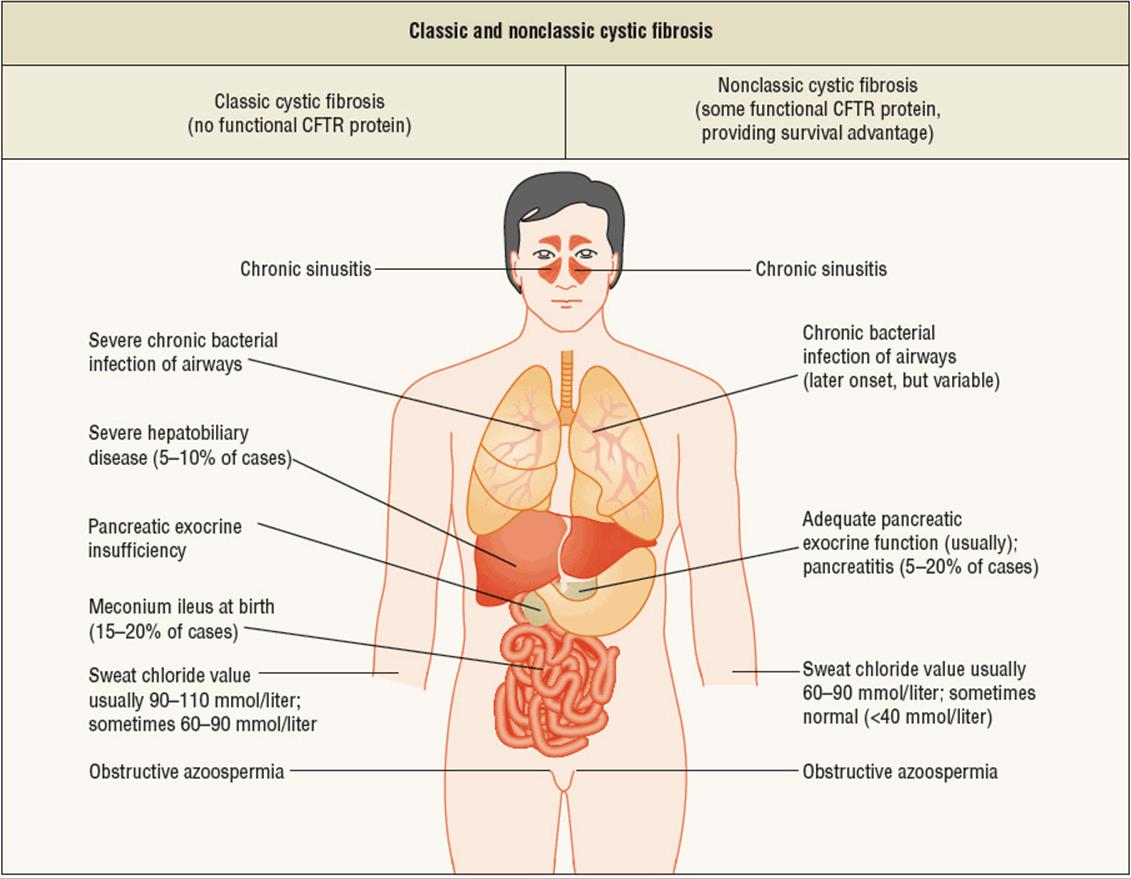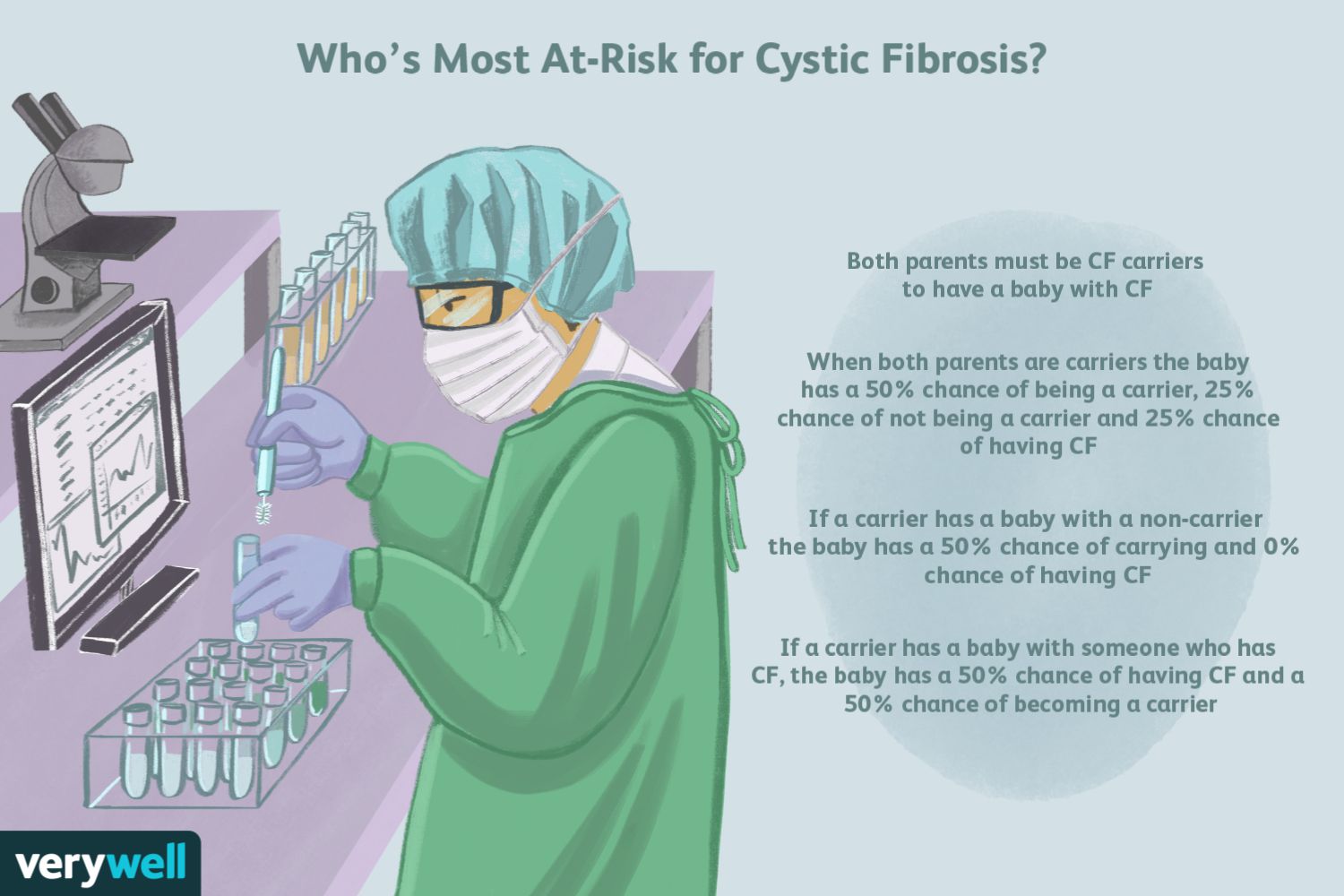
Key facts
- Cystic fibrosis (CF) is a disease that mostly affects your lungs and digestive system.
- CF is caused by a mutation (change) in a gene which is inherited (passed on) from your parents.
- Currently, there is no cure for CF.
What is cystic fibrosis?
Cystic fibrosis (CF) is a genetic disease that mostly affects your lungs and digestive system. It results from a change in a particular gene.
CF causes you to get a lot of very thick and sticky mucus in your:
- lungs
- airways
- digestive system
This causes problems with:
- digesting your food
- repeated lung infections, which can permanently damage your lungs
In Australia, 1 in every 2,500 babies born has CF.
There is currently no cure for CF, but treatments for CF are improving.
The estimated median (average) life expectancy of Australians with CF is also increasing.

What are the symptoms of cystic fibrosis?
The symptoms of CF vary from person to person.
There are many signs and symptoms of CF. Some are related to your respiratory system, where thick mucus clogs your airways. These can be:
- chronic (ongoing) cough
- wheeze
- shortness of breath
- frequent lung infections
- frequent sinus infections
Most people with CF have digestive problems. These are caused by your pancreas not working properly. Some common symptoms are:
- poor growth
- trouble gaining weight
- frequent greasy or oily stools (poos)
- bowel blockages
Other problems can include:
- fertility problems
- CF-related diabetes
- incontinence
- reflux
- low bone mineral density
What causes cystic fibrosis?
CF is caused by a mutation (change) in a gene called the cystic fibrosis transmembrane conductance regulator (CFTR) gene.
This gene helps control the salt and water in your cells. It affects the production of mucus, sweat and digestive fluids.
About 1 in 25 people in Australia carry the CF gene. Most people don’t know they’re carriers. This is because when you’re a CF gene carrier you don’t have any symptoms.
One in 20 people in Tasmania carry the CF gene. This is the second highest rate in the world.
Both parents must carry the CF gene for the disease to be passed to their child. If both parents carry the gene, there is:
- a 1 in 4 chance that your baby will have CF
- a 1 in 4 chance that your baby won’t have CF
- a 2 in 4 chance that your baby will carry the gene for CF
Genetic testing
If you’re an adult who has a family history of CF, you can have blood tests. These will show if you carry the gene for CF.
If you’re planning a pregnancy, your doctor can arrange for you to be screened for the CF gene.
If your results show that you carry the CF gene you may want to talk with a genetic counsellor.
How is cystic fibrosis diagnosed?
CF is usually found in newborn babies through the heel prick test.
This free test involves pricking the heel of your baby to get a tiny blood sample. It looks for a number of conditions, including CF.
The heel prick test finds up to 90 in every 100 babies with CF.
If your baby has a positive heel prick test, they should then have a sweat test at about 6 weeks. This will show if they have CF.
Your baby may also be tested if they:
- have CF symptoms
- do not grow and gain weight as expected
How is cystic fibrosis treated?
Cystic fibrosis is best managed by a multidisciplinary team involving:
- doctors
- nurses
- dietitians
- physiotherapists
- pharmacists
- social workers
- psychologists
You will need medical treatments and physiotherapy from birth. Treatment and management is lifelong.
Management usually involves:
- physiotherapy every day to clear your lungs
- tablets to replace enzymes that help digest your food
- antibiotics for lung infections
- puffers to open your airways
- salt and vitamin supplements
- a special diet that is high in calories, high in salt and high in fat
- exercise to build up core strength
In the past, treatment has focused on controlling symptoms and preventing complications. But there are now medicines available that target the cause of cystic fibrosis. These are called ‘modulator therapies’.
Some people with CF may need a lung transplant to prolong their lives. Others may need a liver or pancreas transplant.
Complications of cystic fibrosis
With improvements in life expectancy, people with CF are now more likely to get chronic health conditions associated with ageing.
In particular, people with CF have an increased risk of:
- colorectal cancer
- cardiovascular (heart) disease
It’s not clear how modulator therapy will affect the development of chronic conditions.





